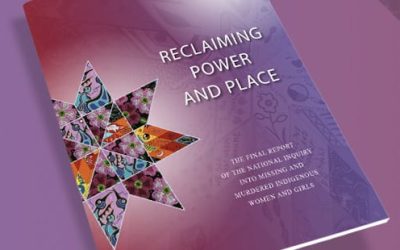Frontier Centre: You have arrived separately at conclusions strikingly similar to ours, that what lies at the root of First Nations poverty and distress is too much emphasis on community and not enough on the individual. What is the proper relationship between society and its parts and how is this lacking on Indian reserves?
Gordon Gibson: Well, the fundamental determinant of the human condition is the relationship between the individual and the collective. The individual always has to have primacy. But we have to understand that by ourselves we are nothing, so the collective is of immense importance. The problem is to make sure that the collective is always controlled by the group of individuals – not vice versa. On Indian reserves you have small governments with such very large powers that they are, in fact, capable of controlling their own members through such things as employment, housing, welfare and so on.
FC: Many non-native Canadians do not appreciate the level of powerlessness that residents on Indian reserves experience in their daily lives, nor would most of them tolerate it if it applied in their own lives. Isn’t it time we took off our blinkers?
GG: Well, it certainly is time – and I will use a much larger word – that we applied honesty to the whole question of Indian and non-Indian relationships in this country. People simply do not worry or think about it enough. They assume that education is going to solve the problem. It is not going to solve the problem the way education is going now. The issue of money isn’t going to solve the problem, it clearly is not solving the problem. It is going to require an awful lot more study and concern and work and, to put it again, honesty by governments and everyone else concerned.
FC: Research by the Harvard Project has demonstrated that Indian cultures varied widely in their customary political life, from the Apache, for instance, whose power structures were quite hierarchical all the way to the Sioux who are highly individualistic. What historical error led us to treat them as the same?
GG: Well, unlike in the United States, the administration of Indian policy has come from one desk in Ottawa, so everyone has been treated the same. All band governance is governed under the Indian Act of Canada and all bands are subject to it. There are so-called custom bands that are allowed some variations but, basically, it is all run out of the Ottawa system. In latter years, of course, Ottawa has washed its hands of the whole system and what we now have is a virtual power vacuum, with Indian elites and the Courts running things.
FC: Provisions of the Indian Act that impact First Nations poverty include a lack of individual property rights, a wall that separates reserves from commercial credit and the inability of outside Courts to enforce contracts. Should we scrap the whole thing and start over again? Is there any chance for prosperity on reserves in the current context?
GG: I don’t think we have the right to scrap the reserve system until such time as individual Indian bands say that is what they want to do. The mainstream society imposed this system and with it we have built cultures and expectations that the people value, however dysfunctional some of them may be. So, it is not in our unilateral right to say this is all over and, indeed, that was the big mistake of Trudeau and Chrétien in their White Paper proposal of 1970. The right answer is to empower individual Indians with education, with help, with job opportunities, with mobility and allow them to make the choices that will lead to betterment.
FC: Some have said that the Frontier Centre has placed too much emphasis on a lack of property rights as a root cause of aboriginal poverty. Some have described a variety of situations in which individual ownership was being honoured de facto by native communities. What is your opinion?
GG: The Indian Act does provide for so-called Certificates of Possession which are a fairly robust form of poverty right. You can sell your Certificate of Possession, you can will it to your children. You cannot, however, sell them to non-Indians, to people outside the band. So, that is a significant restriction but it is a property right provided for in the law of Canada. Indians who want to go further than that in terms of property rights always have the option, which about 50% of Indians have taken, of leaving the reserve, going to town and getting with a mainstream type of life.
FC: Canadian taxpayers are pouring an unprecedented amount of money into First Nations, but the poverty indicators are improving very little if at all. How much of these resources do you think are actually reaching the people and how much is paying for the overhead deducted by the so-called Indian industry?
GG: Well, there is a lot going into overhead. There is an immense amount spent on lawyers and consultants. Treaty negotiations are in the millions and millions of dollars here in British Columbia. I know the N’Niska treaty alone cost about $100 million to negotiate over some twenty years. Beyond that there is also a lot of waste, I am sure. But you are talking about services in very remote and high cost areas, like health services and educational services, sometimes not doing a very good job. Recent stories have said that the educational policy is really a non-policy doing nothing in a secret report to the ministers. These enormous amounts of money are not producing results. That is about all we can say, and the reason we can’t say any more than that is because we are allowed to measure what is going on. We can say, “Is there waste here, is there inefficiency, could things be done better?” We are allowed to know that.
FC: Jean Allard’s treaty annuity group is asking that about half of the spending be redirected into expanded treaty payments, a plan that would give each card holder about $5000 a year. Does this proposal go too far, or not far enough, and why shouldn’t we individualize the whole amount?
GG: I have participated with Jean in the treat annuity working group and I was one of the signatories though I was also one of the ones who insisted that a caveat be put in that not all of us agreed with all of the details. My own view is that the $5,000 amount is too much and I have a serious reservation as to whether it ought to be paid to entire families or whether it ought only to be paid to adults in the family. But in general I very much support the policy.
FC: Much to the disappointment of many natives, Bill C-7, the First Nations Governance Act, appears to be dead in the water. Our Aboriginal Policy Fellow is saying that the Federal government has a fiduciary responsibility to re-introduce it, or something similar, in the next Parliament. Did you support it and why or why not?
GG: I was opposed to C-7 as it was written because I believe that it empowered Chiefs and not ordinary people. There are parts of it, having overall to do with accountability and transparency, which are good, which should be brought back and re-introduced. There were good parts and bad parts. Let’s bring back the good.
FC: One suggested reform that wasn’t in Bill C-7 would have Grand Chiefs elected directly instead of by incumbent band leaders. One provision that was added was the establishment of an Ombudsman’s Office to investigate complaints about leadership wrongdoing. Could these changes strengthen accountability and are there any others that you would like to see?
GG: Certainly there has to be some kind of appeal mechanism with some kind of investigative capability. As is very well-known, when any ordinary Indian brings a complaint about malfeasance or maladministration in a band, and if they take it to the RCMP, the RCMP refers it to the Indian department and the Indian department then refers it back to the RCMP. It disappears in an endless spiral of files and it is never heard from again. Some more efficient system has to be found but, you know the very best cure for all of this stuff is permanent sunshine rather than the secrecy which surrounds some much band administration activity.
FC: Some Indian reserves are opening up their books and amending their ruling process to let ordinary folks participate. Are there grounds for optimism?
GG: Well, yes, that is exactly what I was saying. Openness and sunshine cures most of the ills.
FC: In First Nations, Second Thoughts, Tom Flanagan claims that First Nations self-government is destined to fail because small reserve populations do not contain the skill sets needed to deliver the whole range of municipal, provincial and federal services. Are we expecting too much?
GG: Clearly, when we are negotiating the kind of treaties we are trying to negotiate, which do have the panoply of federal, provincial and municipal functions, very few bands and very few large cities in this country have the resources necessary to make the whole thing work. I think it is much better to negotiate government agreements which are scale–appropriate, which give people control over things that they really have the ability to control and really need to control, and leave the rest to the people who are doing it already.
FC: Many natives who have reached middle-class status were able to do so because they were educated in Indian Residential Schools. Now we are pillorying the performance of these institutions and occasional incidents of abuse have exploded into thousands of highly dubious claims. What’s your opinion?
GG: Many of the people involved in those Residential Schools, including the Indian parents who sent their kids to them, thought they were doing the right thing. The fact that much tragedy has come out of it should not obscure the fact that those schools did some good too.
FC: Many Indian tribes gave back a lot of land originally allocated to them by treaty and many claim that these surrenders were coerced. How much injustice did occur? Is the current settlement process doing much to remedy such problems or has it become hopelessly politicized?
GG: Well, I can only speak for British Columbia. We are going through an exceedingly rigourous process of land allocation which will end up being very considerably in excess of the small reserves which were unilaterally allocated to Indian over 100 years ago. In the rest of the country, I am aware that there is a general claims process. I am also aware that it seems to be doing almost nothing.
FC: You have described the behaviour of public servants who are negotiating treaty settlements as resembling the “Stockholm Syndrome” where hostages are psychologically captured by their captors. Does that metaphor explain why so many settlements are one-sided?
GG: I think it does and it is not just the “Stockholm Syndrome”, it is the so-called fiduciary relationship. The Crown is said to have a fiduciary relationship with Indians which means that they have to be extra solicitous and bend over backwards to be fair. At the same time, the same agents of the Crown seem to find it somehow difficult also to want to be solicitous of the general taxpayer. I understand it puts them in a direct conflict of interest so you almost have to wonder if there should be two federal agents, so to speak, at the table – one from the Department of Indian Affairs and the other from the Treasury Board.
FC: Are you tracking what is happening with the settlement money that has already been paid, is any of it trickling down to the mainstream aboriginal?
GG: I do not have enough evidence of that. Even in the one large treaty signed in British Columbia, the N’Niska Treaty, there is not much evidence in the public domain at the moment.
FC: You have argued quite eloquently that we should not encourage separate societies in Canada. How can we convince aboriginals that equal treatment under the law is not the same thing as assimilation?
GG: Well, the way I put it is — it’s a matter of choice. I am not trying to convince anyone of anything. I am just trying to make sure that aboriginal people in this country have a choice to lead just as good a life as anyone in mainstream Canada and live in any part of the country. My view is that, of the people who have that choice, many will make it. For those who care to remain in the traditional system and live on the reserves, that is their choice, too.
FC: There is pressure to spend more money on public housing for aboriginals in Winnipeg. This is a somewhat artificial problem since few will build housing as long as Manitoba has rent controls. Your thoughts on that?
GG: Well, rent controls are well-known disasters anywhere in the world they are used. The fact that you tell me you have them here tells me that you have a market rental housing problem that won’t go away until the rent controls go away. It is as simple as that.
Read on PDF here.



